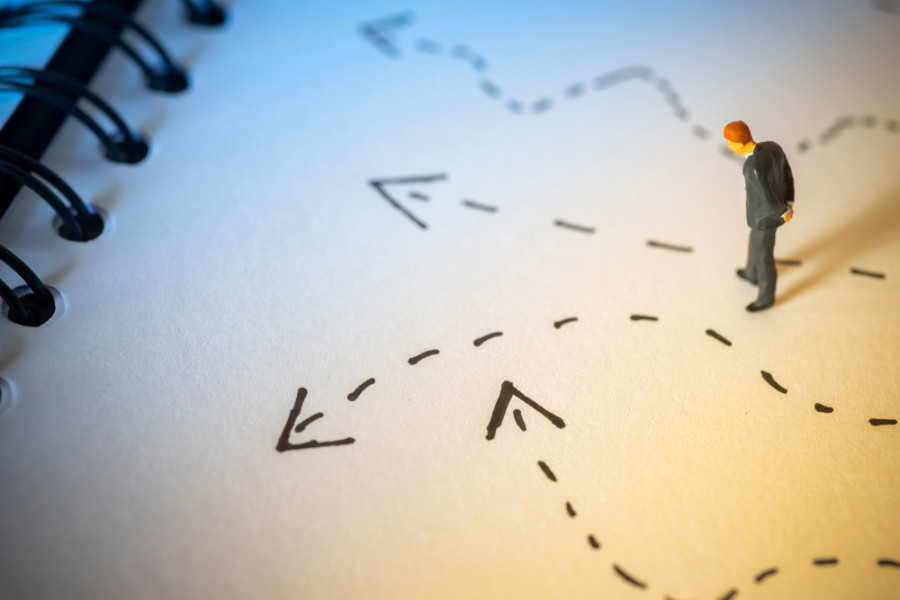Columns
Lockdown Musings
This is the best reflective time we have got—everyone needs to use it productively.
Sujeev Shakya
This has been bizarre and unprecedented. We are connected virtually to the world but we are isolated in our houses. It has surely helped people to reflect on many things. While social media is providing all sorts of news, views, prophecies, predictions and humour, people are learning how to live in a world where uncertainty and anxiety rule. Nepal’s fate is very much tied to India’s during such times; our land border can bring goods and people from either side but can also bring in the virus, SARS-CoV-2.
We were not too worried when Covid-19 was a big issue in China, we continued to allow flights from our northern neighbour. Our major sources of news and views are not from China, and with a complex system of information dissemination, we do not have accurate information from the country. Even if the information is being shared, we question its authenticity and credibility. Nepalis started to panic only when the pandemic hit Australia, Europe, the Middle East, Canada and then the US. Almost every Nepali family would have someone within their first degree of contact that resides in those countries.
A yearning for a home
The pandemic hit Nepal when it started to impact Nepalis across the world. The sense of identity became important as, at these tough times, it is only the country whose passport you hold that becomes a true source of hope and comfort. Therefore, the worst-hit are the Nepalis who have been living without proper papers in different parts of the world. The mass exodus from India also reflects this behaviour; it is not only about going hungry, but in case of the worst-case scenario medical teams will start to choose—naturally they will choose their own citizens before others. In Italy, this choice sadly became based on age, where younger people were being treated at the cost of the elderly. I hope that no other country will have to take such decisions.
The lockdown is the new normal and we are not sure how long it will continue. People are getting used to new ways of life. Working from home is possible for knowledge workers; people are discovering newer platforms to keep connected. With electricity and the internet being available in abundance, many services continue. However, people who work in small private sector firms or have jobs in shops, eateries, hotels, and still others who run small businesses, are already being impacted. Some of them are innovating through providing the home delivery of goods, but this is a very small segment.
The people in such sectors will need to dip into their savings—if they have any—for at least a good four to six months; rarely do government programmes reach the people who are in need. Further, a majority of the large Nepali private sector players, in the past, during the most trying times, have demonstrated they just do not have large hearts. In the end, it is the social structure of Nepal through families, friends and well-wishers that will help to tide this situation.
The few positives
It is nice to see the social media space also being plastered with pictures of the skyline devoid of pollution, the birds chirping and with clear views of the Himalayas. We in Kathmandu are suddenly realising why many visitors in the seventies and eighties used to refer to this valley as being air-conditioned. The climate control button does not always need to be in human hands—nature is giving us a climate where we do not need any heating or cooling. The complete shutdown of construction and traffic is providing our eyes, ears and nose with a calm not experienced in decades.
We realise how picturesque the valley remains with the greenery and flowers. Perhaps, we realise in the quest of getting the last anna of land when a family property is being divided or trying to get the government, guthi and public land to build and extend our structures: did we do the right thing? In these unprecedented times, we are also witnessing social change. As women are forced to work from home as well as work at home, more and more men are stepping up—or being forced to step up—to help with household chores.
On the macro scale, it is time to think of replicating the mindset of reflection we have created during lockdown to see how this can be used when we think of climate change, consumption, following traffic rules, construction norms and our overall greed for more land and property. Whenever this lockdown comes to an end, we need to ensure that the reopening needs to occur in a staggered way. It will be important to keep Nepal isolated for some time from international passenger flights, though emergency flights and cargo flights need to continue with the right protocols.
The land borders need to be regulated; there has never been a better time to begin keeping proper records of people who are crossing the border on both sides. This is not a new thought—it was recommended in the report of Eminent Persons Group for India and Nepal. Now, India will also realise that this is not only in Nepal’s interest but its own as well. Of course, we have to also ensure that we have goods flowing two ways, as that keeps a lot of smaller businesses on both sides of the border going. The effects of the 2015 blockade, though largely felt in Nepal, also impacted the Indian side right across the border. We need to have a plan for the gradual easing of activities, but social and religious gatherings will still need to be curtailed for a long time to come. We can again learn from Singapore, who just released their circuit breaker guidelines—which ensures further distancing.




 9.89°C Kathmandu
9.89°C Kathmandu















